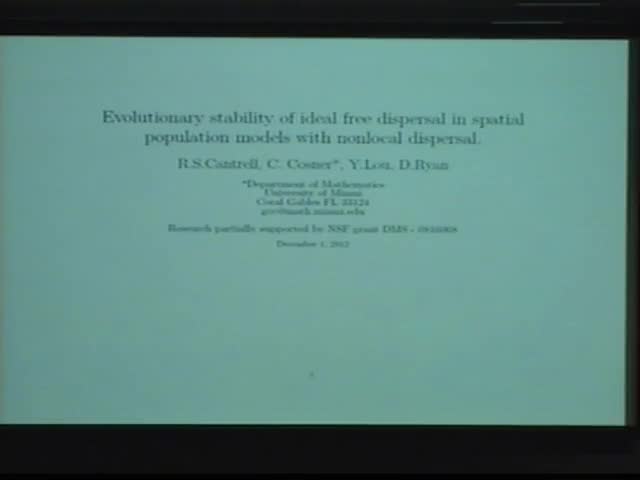Evolutionary Stability of Ideal Free Dispersal Strategies: A Nonlocal Dispersal Model
Presenter
December 5, 2012
Keywords:
- Ecology
MSC:
- 92D40
Abstract
The dispersal of organisms has many significant ecological effects, and hence the evolution of dispersal has been a subject of considerable interest in evolutionary ecology. An important problem in the study of the evolution of dispersal is determining what kinds of dispersal strategies are evolutionary stable in the sense that populations using them cannot be invaded by ecologically similar populations using other strategies. A class of strategies that have been shown to be evolutionarily stable in various contexts are those that produce an ideal free distribution of the population, that is, a spatial distribution where no individual can increase its fitness by moving to another location. This talk will present results on the evolutionary stability of ideal free dispersal strategies in the context of continuous time nonlocal dispersal models. These results partially extend some recent work on the evolutionary stability of ideal free dispersal for reaction-advection-diffusion equations and discrete diffusion models to nonlocal dispersal models. They also include an extension of an inequality from matrix theory to the case of nonlocal dispersal operators, which may be of independent interest.
